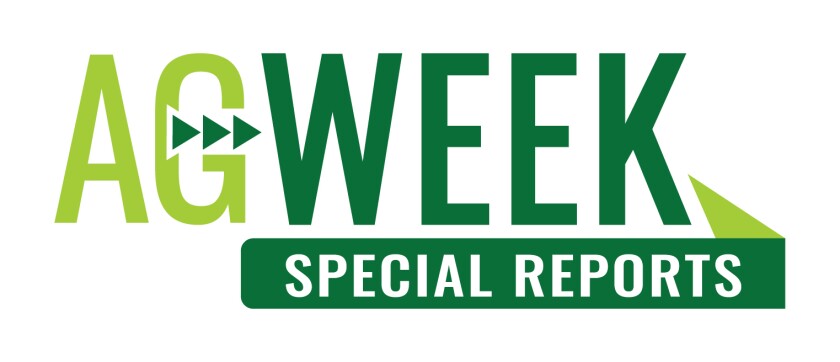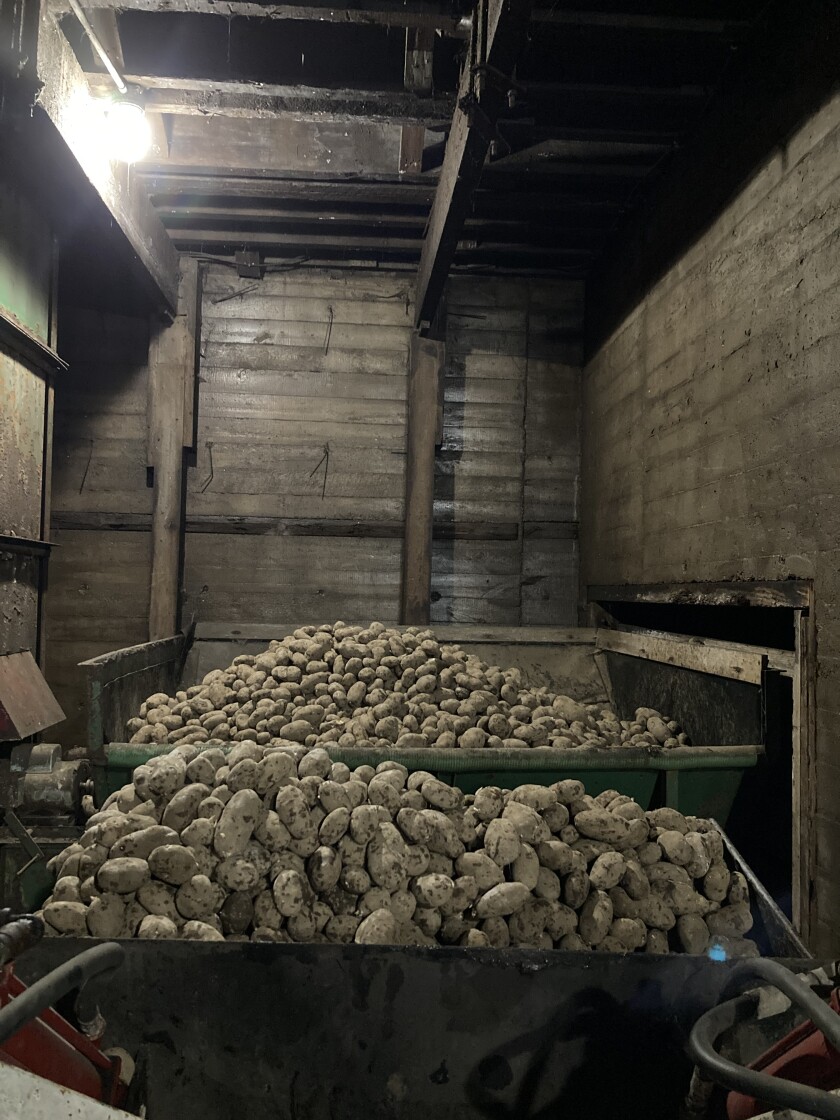HALSTAD, Minn. — Bjorn Solberg makes marketing potatoes to schools a key part of his business.
The owner of Hugh’s Garden in Halstad participates in the Farm to �������� program, selling potatoes to schools in the large Minnesota cities of Minneapolis, the St. Paul suburb of Roseville and in smaller consolidated schools such as Dilworth-Glyndon-Felton.
ADVERTISEMENT

Heather Nowak, Dilworth-Glydon-Felton Public ��������s nutrition services director, uses money from a $70,000 Minnesota Agriculture Department Farm to �������� program grant she received in February 2023 to help pay for the potatoes she gets from Hugh’s Gardens and other products she buys from local farmers.
“I’ve always had a passion for Farm to ��������, because I really think it's important to tell our students where food comes from and to put a face on it,” she said.
The Patrick Leahy Farm to �������� Program helps child nutrition program operators incorporate local foods in the , the and and all associated programs, according to the U.S. Agriculture Farm to �������� website. The agency’s staff also work with tribal communities by promoting food sovereignty and the integration of traditional food ways into tribal meal programs.

Solberg purchased Hugh’s Gardens, a washing and packing certified organic potato plant, in 2019. The 2.1 million pound-capacity plant, originally built for storage and shipping of conventional potatoes, was converted to organic in 2000 by its previous owners, Hugh and Carmen Soria-Dufner.
In late August, Hugh’s Gardens bins were empty and the equipment ready to wash and pack 2023 potatoes, which will be distributed directly to schools and retail customers, such as grocery stores and restaurants or to wholesale companies.
Solberg also purchased a condenser and in the future hopes to be able to store potatoes year-round, supplying customers who want to buy the produce in the summer.
Solberg didn’t have experience with potato production before he bought Hugh’s Gardens, but he did have an agricultural background that has helped him navigate the potato marketing business.
ADVERTISEMENT
He grew up on a farm south of Fargo, North Dakota, near Wild Rice, where his family raised wheat, barley and soybeans and had a sheep, goats and chicken business.
“Growing up on the farm is where I learned to work hard and where I gained an entrepreneurial spirit from my parents,” Solberg said. Though he never planned to become involved in agriculture, Hugh’s Gardens is opening his eyes to the many ways people are connected to the industry.
“There are many opportunities out there besides being a farmer. I appreciate having a hand in the health care and educational systems, too, along with agriculture,” Solberg said.
Owning Hugh’s Gardens is a way for Solberg to be involved in the food system and promote a healthy, locally raised commodity, something he’s been passionate about since taking a sociology class at Concordia College in Moorhead, where he earned a degree in social studies and secondary education.

After Solberg purchased Hugh’s Gardens, he initially worked with a single Minneapolis school that was ramping up its Farm to �������� program. Since then he’s worked each year to add school customers.
Hugh’s Gardens supplies potatoes for school breakfasts, lunches and summer feeding programs.
Solberg works with the school nutrition program staff to provide the kind of potato and the grade they plan to serve in their lunchrooms.
ADVERTISEMENT
Options include a medium- or large-sized russet for baked potato bars, large red for wedge potatoes or wedge fries and a lower grade potato that might be “skinned” or otherwise blemished, but still suitable for mashing.
“Really, it’s about what they’re going to do with it, what variety they might be looking for, how many pounds they’re looking for,” Solberg said.
Nowak, an 18-year veteran of working in school food services jobs in North Dakota and Minnesota, has been Dilworth-Glyndon-Felton Public ��������s nutrition services director since October 2022.
Hugh’s Gardens was one of the first local companies she worked with after she started her job.
The school has used the potatoes from Hugh’s Gardens in its lunches in baked, potato cubes and French fry forms.
Solberg has been “phenomenal” to work with, Nowak said.
“He has gone above and beyond; answered my questions, helped me make connections. He helps deliver to the school,” she said.
ADVERTISEMENT
Solberg has procured potatoes from a variety of producers in Minnesota and North Dakota during the past four years, now offering contracts to a farmer who grows certified organic potatoes near Alexandria, Minnesota, and one who raises the crop near Park Rapids, Minnesota.
Besides marketing potatoes, an important part of Solberg’s work with the Farm to �������� program is talking to elementary, middle and high school students about the commodity.

“The Farm to �������� program isn’t just supplying food into the school lunchroom. It’s producing much more of a hands-on, experiential learning opportunity for kids. So I’ve been able to do a few classroom and also visiting lunchrooms, so it’s been a lot of different things,” Solberg said.
For example, the teacher at the last school at which he spoke told him she had been teaching about seeds, so Solberg brought seed potatoes with him to the class and talked about them and what they mean for his business and for them.
Whether visiting school classrooms or lunch rooms, the students Solberg meets are enthusiastic and ask many questions, he said.
Solberg also helped found as an easy way way for customers to be able to efficiently order local food products, including potatoes, from producers. ��������s in Moorhead and Dilworth-Glyndon-Felton use it to find produce for their Farm to �������� programs.
The Red River Harvest Cooperative will host an , on Sept. 10, 2023, which will include a farm-to-school-meal demonstration from Dilworth-Glyndon-Felton schools and a short panel discussion.
ADVERTISEMENT
The farmers whose potatoes that Solberg sells to the schools support him teaching students about their produce.
“They’re more than happy for me to be the marketer and the face after putting in the work of growing them," Solberg said.
Solberg wasn’t expecting the challenges of poor production years and COVID when he bought Hugh’s Gardens, but the involvement in the Farm to �������� program is developing as he had hoped it would.

“What I did envision was more Farm to �������� programs and that's been coming to fruition, and I’m hanging in there, and we’ve got many years ahead of us to be supplying people,” Solberg said.









